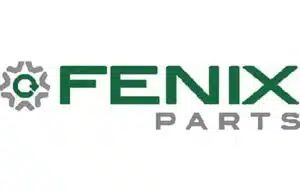Lauren Roman, Business Development Director, Metals & Minerals Ecosystems at Everledger provides her thoughts on how vehicle dismantlers, through blockchain can gain safe and economic handling of EV batteries (EVBs).

Imagine receiving an electric vehicle for processing. The VIN number is on a tag that can be scanned with a cellphone to tell you all about the battery and what to do with it. It will tell you the specific chemistry, provide critical safety information including removal from the vehicle, storage and shipping.
It will tell you whether the battery is under warranty or not and, in either case, provide information on who to call for proper packing, shipment and disposition of the battery. Better yet, it will tell you how the costs will be covered.
There are a number of initiatives taking place around the globe working to make the above scenario a reality.
An infographic from Raconteur helps visualize anticipated growth in the electric vehicle market – a segment that represented 1-2% of total vehicle sales in 2018. Using projections from Morgan Stanley, electric vehicle sales are expected to surpass those of traditional vehicles by 2038, while the global fleet is expected to surpass one billion by 2047. ATF operators are now beginning to see a rising tide of end of life electric vehicle batteries (EVBs) and are largely unequipped to safely and properly manage them.
There are, however, a number of initiatives taking place around the globe working to make the above scenario a reality.
Global Initiatives to Manage EVB Lifecycles and Final Recovery
The Global Battery Alliance (GBA), a program of the World Economic Forum, is a public-private coalition working to catalyze, accelerate and scale up action towards an inclusive, innovative and sustainable EVB value chain. Their latest report, Battery Passport: Key Enabler for a Sustainable and Circular Battery Value Chain, outlines lifecycle management of electric vehicles via a “Battery Passport”, or digital identity, that connects the battery to the internet. By doing so, all participants in the lifecycle of electric vehicle batteries can be united on a distributed database, or blockchain, to access and share critical data about the battery. For ATF operators, this provides a path to safe and economic EVB handling for the coming onslaught of end of life electric vehicles.
In the US, the Department of Energy launched a 3-year Lithium-ion Battery Recycling Prize contest, soliciting and awarding new ideas for capturing and recovering 90% of lithium-ion batteries in the US (the current rate, across all lithium-ion batteries, is 5% in the US). My company, Everledger, successfully led a multi-stakeholder team representing all participants in the lifecycle of an EVB:
- Battery manufacturer
- EVB manufacturer
- Dealership
- Garage
- Auto Recycler
- EVB repurposer
- EVB recycler
Industry associations have also participated, including the Automotive Recyclers Association, the Institute of Scrap Recycling Industries, the Reverse Logistics Association, the Responsible Battery Coalition, and more.
Everledger’s winning submission for Phase I of the Prize (one of 15 awarded), entitled A Circular Economy for Electric Vehicle Batteries, was awarded $67k to develop a pilot to demonstrate how EVBs, when given a digital identity, can connect all stakeholders in the battery lifecycle for optimal management and assured responsible recovery at end of life. We are now in Phase II of the program, developing a proof of concept to support the next award round scheduled for October, 2020.
Contestants that succeed through all 3 phases will be awarded close to $1 million in prize money. The funds awarded to our team will be used to build a custom technology platform where all stakeholders in the lifecycle of an EVB can retrieve and share critical data. The private blockchain platform will support governance of stakeholders participating in the ecosystem to ensure quality, trust and security of the data shared.
Other organizations have also launched initiatives to track and share data on EVBs.
Late last year, NAATBatt, the Alliance for Advanced Transportation Batteries, launched an Exchange and Tracking Subcommittee as part of the Recycling Committee to explore the development of an exchange where repurposers and recyclers can find batteries for new life or material recovery. The subcommittee is also looking to find ways to support other tracking initiatives, understanding that the only way to effectively manage these batteries is to know where they are, who has them, what condition they are in and where they are headed.
The Supplier’s Partnership for the Environment (SP) provides a forum for global automotive manufacturers, their suppliers and government agencies from around the world to work together to improve the environmental sustainability and business value of the global auto supply chain. SP’s new Responsible Battery Work Group is also exploring ways to organize the value chain to ensure safe and effective EVB management.
From a regulatory perspective, China has forged ahead with regulations making electric vehicle manufacturers responsible for the entire lifecycle of the EVB. The scheme includes adherence to a system for identifying and tracking EVBs. The EU is looking at China’s system along with others as part of the effort to update the Battery Directive to address EVBs specifically.
The Coming Wave of Old Electric Vehicle Batteries Has Arrived – What’s an ATF to Do?
Although these initiatives are underway, they will take some time to become effective. In the meantime, ATFs are unwittingly placed in a position to handle extremely dangerous batteries that many are unequipped to manage. Here are some practical steps you can take to safely and economically manage EVBs:
- Check with your local or regional environmental authority for any handling and shipping requirements
- Check with the vehicle manufacturer to see if the battery is still under warranty or not. Even if not under warranty, it is in the manufacturer’s best interest to ensure their battery is managed safely and that it is handled and shipped in accordance with regulations.
- Get involved with the initiatives underway to ensure that the best interests of ATF operators are considered when developing what will likely become industry-wide solutions.
About the author
Lauren Roman is Business Development Director, Metals & Minerals Ecosystems at Everledger. Everledger was founded in 2015 and established the first provenance platform tracing diamonds from the mine. Everledger is now addressing other provenance, sustainability, product counterfeit, lifecycle management and ‘trust’ issues in a wide variety of verticals and employs over 80 people at 5 locations globally.











